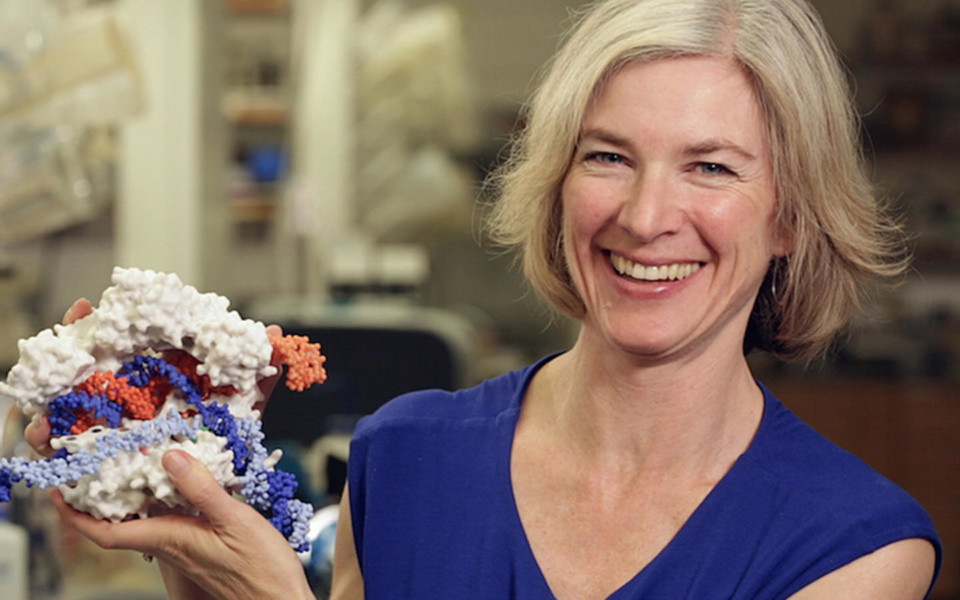UC receives patent for use of CRISPR-Cas9 to tune gene expression
The U.S. Patent and Trademark Office today issued a patent to the University of California (UC), the University of Vienna and French biologist Emmanuelle Charpentier that covers methods of modulating DNA transcription using the CRISPR-Cas9 system.
The patent (No. 10,301,651) covers techniques that enable sequence-specific repression or activation of gene expression in all types of cells, including both prokaryotic (bacteria) and eukaryotic (plant and animal) cells. These unique methods form a toolset for controlling gene expression that effectively enables genes to be turned up or down.
“Today’s patent further builds on the numerous CRISPR-Cas9 techniques covered by UC’s patents, and the university is committed to ensuring the technology is used to benefit society,” said Eldora L. Ellison, the lead patent strategist on CRISPR-Cas9 matters for UC and a director at Sterne, Kessler, Goldstein & Fox. “We anticipate that UC’s robust portfolio of intellectual property surrounding its CRISPR-Cas9 inventions will continue to expand.”
Today’s patent is the fifth in UC’s swiftly growing CRISPR-Cas9 patent portfolio. Five additional applications have received notices of allowance and are expected to be issued as patents in the coming months.


